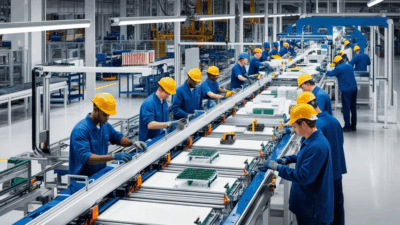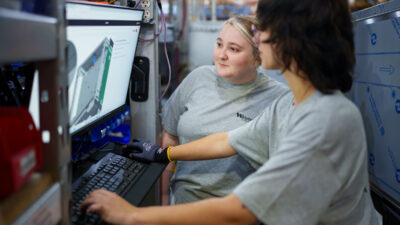Siemens Large Drive Applications delivered a drive train, which includes artificial intelligence and machine learning to Deer Park Refinery located in Houston, Tex., one of the nation's largest refineries.

Siemens Large Drive Applications delivered a drive train, which includes artificial intelligence and machine learning to Deer Park Refinery located in Houston, Tex., which is co-owned by Shell Oil and PEMEX, Mexico’s state owned oil company. The drive train, consisting of a 15,250 hp Simotics motor and a Sinamics Perfect Harmony GH180 water cooled, medium voltage drive, is the first to incorporate Veros Foresight hardware and software solution from Veros Systems as well as Sidrive IQ drive train analytics.
Deer Park Refinery is one of the nation’s largest refineries with a 2,300 acre facility and the ability to process 340,000 barrels of oil per day. Shell Oil estimates 20% of its total production costs are from maintenance of motor driven rotating equipment. The refinery needed a solution that would ensure maximum reliability and availability and limit costly disruptions in production. Siemens and Veros engineered a drive-train solution to accomplish these requirements. “The solution was not the lowest cost one, but disruptions caused by failure can cost far more, as in millions,“ says Brad Shepherd, Siemens account manager for Shell.
Siemens and Veros Systems, based in Austin, Tex., expanded its relationship in 2019 by interfacing Veros Foresight with its large drives to provide new performance and health monitoring of motors and the assets they drive, all without installing any sensors on the rotating assets themselves. Veros technology gathers electrical waveform readings from the equipment and then builds a dataset that represents how the motor and its load (compressor, pump, fan, etc.) should perform. Machine-learning processing of the data happens in the cloud and any anomalies or changes in the equipment’s behavior issues an early warning of any developing problems. These notifications allow operators to plan and schedule maintenance on failing equipment before the failure occurs.
“The future of variable speed drives are to not only power the world’s motors but to continuously monitor industrial equipment performance and health, collect data and provide useful information to manufacturers to reduce costs,“ said Scott Conner, general manager, Siemens Medium Voltage Drives, in a press release.



